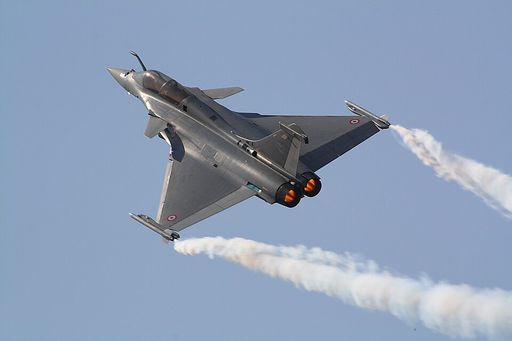Pakistan Foreign Minister Ishaq Dar has said Islamabad reserves the right to retaliate against New Delhi's cross-border strikes that killed 31 people and wounded nearly 60 others, in the worst attack in more than two decades between the neighbours.
Dar said New Delhi is seeking to escalate regional tensions to nullify the 1960 Indus Waters Treaty, brokered by the World Bank.
"Pakistan has the right (to retaliate) because last night, perhaps it needs clarification, we did not take escalatory mode or move. We only acted in defence," Dar told TRT World in an exclusive interview.
Pakistan said it shot down five Indian fighter jets in Indian airspace immediately after its arch-rival conducted cross-border strikes on nine sites that Islamabad says left dozens of civilians, including women and children, dead.
Tensions between the two South Asian nations flared following a deadly attack in India-administered Kashmir on April 22 that claimed 26 lives. India has held Pakistan indirectly responsible for the worst attack in years in the disputed region that both countries claim in full but administer in part.
Islamabad refuted India's claims, proposing an impartial inquiry. India, however, rejected the suggestion and instead launched multiple strikes in Pakistan and Pakistan-administered Kashmir.
Dar said the Pakistan Air Force (PAF) acted under "clear instructions" to hit only those Indian fighter jets that released payload against the country.
If the PAF was given a free hand, the number of downed fighter jets of India would have been close to 15, he said.
"We behaved in a very responsible manner."

NSAs of two countries talk
The escalation has raised fears of a broader conflict between the two long-time rivals, prompting calls from the international community to exercise restraint.
Türkiye said the Indian attack "created a risk of all-out war" and condemned its "provocative" steps and the targeting of civilians.
The US, UK, Russia, China, France and multilateral players like the United Nations have called for ending the dispute through peaceful means.
Dar said the national security advisers of the two countries have had "some interaction" after the cross-border strikes to negotiate a peaceful settlement.
However, Pakistan stands ready to respond to any act of war from the other side "in a befitting manner."
"We have proved this last night," he said, noting that the country’s top national security body has authorised the armed forces to react decisively against all acts of Indian aggression.
Dar told TRT World that India's claims of targeting "terrorist camps" in Pakistan with "measured and non-escalatory" strikes were false.
Local and international media have been visiting the sites of attacks in Pakistan that show no signs of any terrorist camp, he added.
'Act of war'
Dar said India's objective behind the escalation of the military conflict was to get rid of the Indus Waters Treaty, a decades-old river-sharing agreement with Pakistan.
Blaming Pakistan for the killing of tourists in Pahalgam last month, India immediately "suspended" the 65-year-old pact, even though it contained no provision for unilateral suspension.
Pakistan considers any attempt to stop or divert the flow of water from the Himalayan region an "act of war". India wants to usurp Pakistan's water by raising the spectre of terrorism, something that "will not be acceptable."
"In 2019, they created a similar episode. They called it obviously a terrorist act, and they blamed Pakistan," he said, while referring to an attack in India-administered Kashmir's Pulwama area that killed 40 Indian paramilitary troops.
"They created a hype as they did this time in the media… In no time, they declared Indian-occupied Jammu and Kashmir to be part of the Indian Union Territory," he said, citing the constitutional amendment that stripped India-administered and Muslim-majority Kashmir of its political autonomy, allowing India to annex the disputed region.
"Let's see what the global community does. They must condemn openly what has happened. The evidence is now here."



















